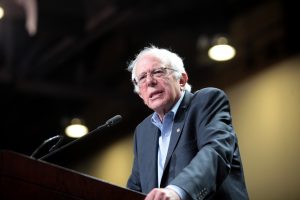by Mark N. Katz
President-elect Donald Trump and Russian President Vladimir Putin have made clear that they have a more positive view of each other than either has of outgoing President Barack Obama. Russian-American relations soured considerably during the Obama years over a number of issues, including Libya, Syria, Ukraine twice (Crimea and then eastern Ukraine), NATO, Western sanctions against Russia, and, most recently, Russian interference in the 2016 American presidential elections.
With Trump soon to take office, can these differences be overcome and a significant improvement in Russian-American relations be brought about? Trump’s effusive praise for Putin shows that the incoming American president is willing. Putin’s less effusive praise for Trump, combined with his pointed refusal to reciprocate the Obama Administration’s recent imposition of diplomatic expulsions and other sanctions against Russia in response to its hacking activities during the American elections, suggests that Putin is also hoping for better Russian-American relations after Trump is sworn in.
But while Trump and Putin want an improved Russian-American relationship, will they actually be able to achieve this? It very much depends on whether they can successfully resolve most, if not all, of the outstanding differences between Washington and Moscow on terms acceptable not just to Trump and Putin, but to those on whose support they each rely—especially Congressional Republicans for Trump and the Russian security services for Putin.
Putin’s demands are clear: He wants Washington to accept (if not formally recognize) Russian annexation of Crimea, to lift economic sanctions against Russia resulting from its actions in Ukraine (anticipating that if Washington does so, its European allies will too), to guarantee that Ukraine (and probably Belarus and Moldova) will not join NATO or the EU, and to accept the Assad regime in Syria as well as Russian leadership in resolving the conflict there.
Trump may actually be willing to accept all these terms. After all: Crimea has already been lost, the sanctions are bad for business, Western Europeans don’t really want Ukraine, Belarus, or Moldova in NATO or the EU anyway, and Assad may seem better than the jihadists who are the most likely alternative to him. But even if Trump is willing to grant what Putin wants from the U.S. on all these items, Trump faces a serious problem in doing so. Since not just the outgoing Obama Administration, but also the U.S. Intelligence Community leadership, has declared that Russia intervened in the 2016 American presidential elections in order to hurt Clinton and help him, any concession by Trump to Putin risks being seen as payback to Russia for this help. Trump can rail all he likes that the Russians did not interfere in the elections, that he wasn’t aware of it, or that it somehow doesn’t matter anyway, but doing so will only increase concerns about his relationship to Moscow.
In order for Trump to actually improve Russian-American relations while not appearing to be Putin’s patsy, he will have to be seen to extract meaningful concessions from Putin in return for any concessions Trump makes to him on Ukraine, sanctions, Syria, or whatever.
What can Trump demand from Putin that the latter might be willing or able to give? One possibility being talked about is that in return for accepting Crimea as part of Russia, Putin must end all his support for the separatists in eastern Ukraine and accept the region’s return to rule from Kiev. In return for assurances that Ukraine, Belarus, and Moldova not join NATO or the EU, Trump could insist that Moscow not block NATO or EU expansion elsewhere in Europe (i.e., Moscow accepts Sweden and Finland joining NATO, and Serbia as well as any other former Yugoslav republic that hasn’t done so already joining the EU and NATO). In exchange for lifting sanctions, Moscow ceases its electoral interference in other countries. And in return for dropping American insistence that Assad step down now, Moscow will get him to announce that he will not run for re-election and work to form a federal Syria that gives each of the country’s many communities control over their own territory.
In other words, for Trump to show his domestic critics, including hawkish Republicans such as Senators John McCain and Lindsay Graham, that he is not too soft (or worse) on Russia, Trump will have to get something from Putin in return for giving him anything. And since Trump prides himself on being a “deal maker,” he should be comfortable with just such an approach.
But will Putin be willing to make any concessions in order to reach an agreement with Trump? This is not at all clear. Indeed, it appears that Putin sees his demands about Crimea, sanctions, Europe, and Syria as things that the West owes to Russia, and so does not see Moscow as needing to make any concessions in return for them. If so, then there is simply no deal to be made that does not result in Trump looking like he is giving in to Putin.
Yet even if Putin is willing to make concessions, Trump cannot make a deal with him just on his own. Other governments (especially those whose countries are the subject of any Russian-American negotiation), the U.S. Congress, and Western public opinion will all seek to constrain Trump from conceding too much and to point out any instance when they see him allowing Putin to concede too little. In short: Russian interference in the recent presidential elections, and Trump’s effort to dismiss concerns about it, will only serve to increase the already considerable obstacles to improving Russian-American relations.






Well, reading Mr Katz’s CV I can understand why he would suggest such laughable “guarantees” from Pres. Putin to Trump, as if the USA holds all the cards. Crimea VOTED to return to Russia; it is the USA which interfered to overthrow the Ukrainian president and support his replacement; “Russian interference in the 2016 American presidential elections.” was alleged-no evidence has been provided at all; NATO has already spread to engulf close to Russia-you want to go further???; E Ukraine is Russian -speaking and it is Kiev causing the damage; you think Russia is guilty, when you should remind the USA to “cease its electoral interference in other countries. ”
This sort of “USA rules the globe and why not? “attitude will not wash. Next you’ll say Russia should toss off its ally, China. A bit of diplomacy could have helped a lot in Obama’s two terms, but that was taken off the table.
How can there possibly be any “improvement” in US-Russia relations, what with Washington’s increasingly hysterical insistence upon its anti-Putin propaganda and misinformation campaign? Moreover, the extent of the American tendency to sip its own Kool-Aid is truly frightening.